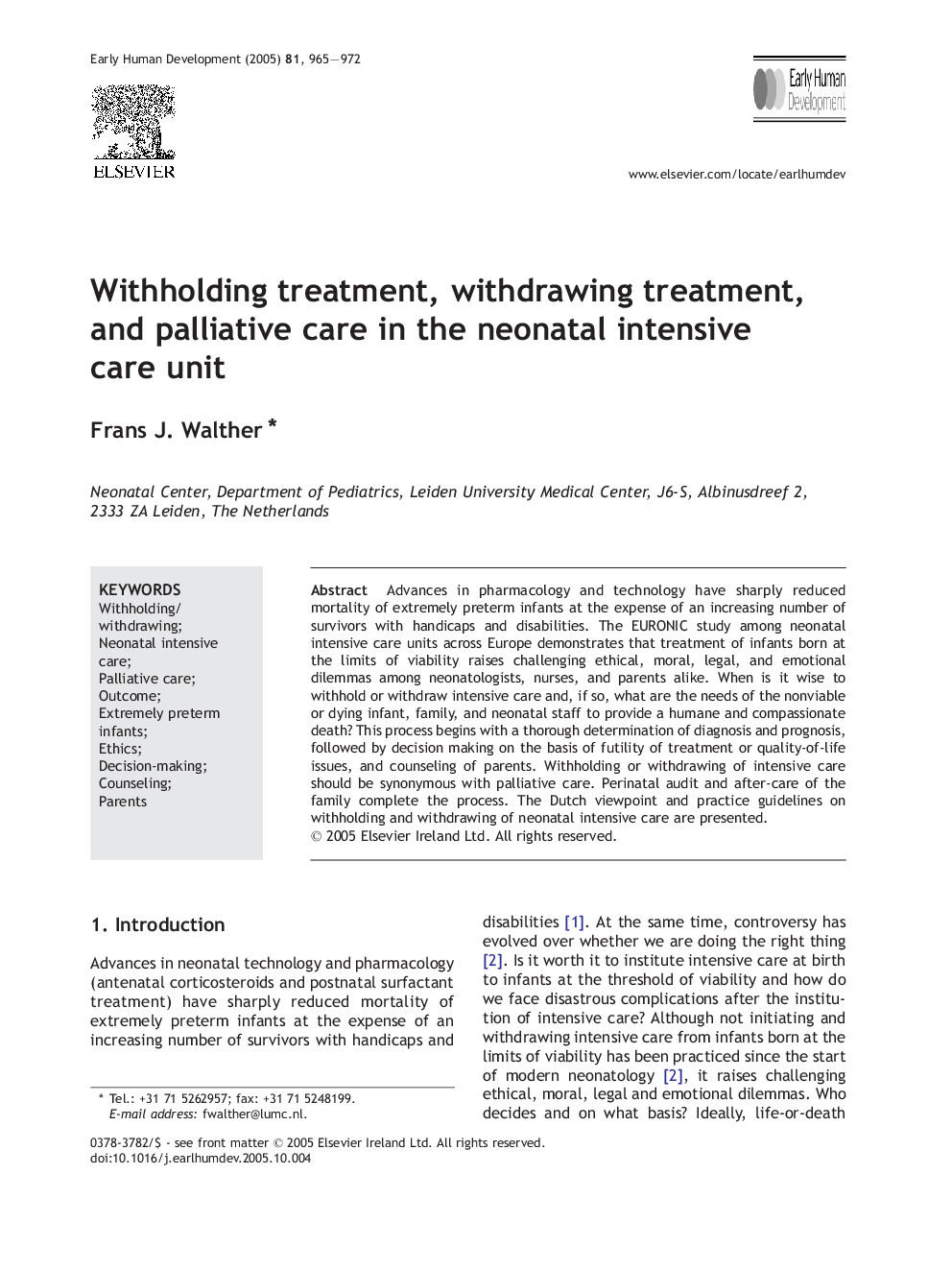| Article ID | Journal | Published Year | Pages | File Type |
|---|---|---|---|---|
| 9318695 | Early Human Development | 2005 | 8 Pages |
Abstract
Advances in pharmacology and technology have sharply reduced mortality of extremely preterm infants at the expense of an increasing number of survivors with handicaps and disabilities. The EURONIC study among neonatal intensive care units across Europe demonstrates that treatment of infants born at the limits of viability raises challenging ethical, moral, legal, and emotional dilemmas among neonatologists, nurses, and parents alike. When is it wise to withhold or withdraw intensive care and, if so, what are the needs of the nonviable or dying infant, family, and neonatal staff to provide a humane and compassionate death? This process begins with a thorough determination of diagnosis and prognosis, followed by decision making on the basis of futility of treatment or quality-of-life issues, and counseling of parents. Withholding or withdrawing of intensive care should be synonymous with palliative care. Perinatal audit and after-care of the family complete the process. The Dutch viewpoint and practice guidelines on withholding and withdrawing of neonatal intensive care are presented.
Keywords
Related Topics
Health Sciences
Medicine and Dentistry
Obstetrics, Gynecology and Women's Health
Authors
Frans J. Walther,
